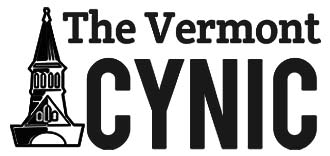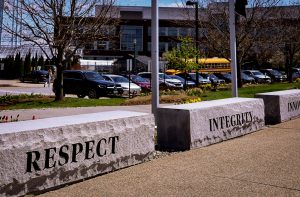Students struggle to book health appointments during finals

January 16, 2018
Students are struggling to schedule appointments essential to their physical and mental health, often in the days leading up to finals.
Due to increased demand for Center for Health and Wellbeing appointments – including Counseling and Psychiatry Services and Student Health Services – students say they are waiting long periods of time before they are able to schedule an appointment.
Between 2007 and 2016 visits to CAPs nearly doubled from 8,800 to 13,000, Todd Weinman, director of counseling and psychiatry services at UVM, stated in a Jan. 5 email.
During this same period staffing increased by 7.6 percent, he stated.
“Staffing increases still have not been able to match the increase in requests for counseling,” Weinman said.
About a month and a half before finals week, sophomore Alexa Herrera tried to schedule an appointment with CAPS. She said she wanted to meet with a counselor she liked to relieve her stress, but the counselor was all booked.
“They were booked out for weeks,” Herrera said, “and then you’re stuck in this zone until the person you want to see is available.”
As the stigma around mental health has faded and the pressure facing college students has risen, so has the demand for UVM’s mental health services, Weinman said.
Though the offices that comprise the Center for Health and Wellbeing (CHWB) are taking steps to meet this demand, students still report difficulty scheduling appointments, Herrera said.
The demand fluctuates along with the levels of stress students experience, and during periods of high academic stress the number of urgent appointments spikes, Weinman said.
Urgent appointments are “always available to students who request them,” Weinman said, “we don’t turn students away.”
Scheduling routine appointments in a timely manner, however, has become much more difficult, Weinman said. A few years ago ten days was an average wait time, but now a wait time of two or three weeks is common.
This hike in stress causes physical as well as mental detriments to student health, said Sue Demasi, Business Manager of the CHWB.
Once, when trying to schedule an appointment with SHS, a nurse told Juls Sundberg that SHS has “had to turn people away during finals week,” Sundberg said.
Though Sundberg’s experiences with SHS have been only positive, the office is extremely overworked, they said.
CHWB also provides a source for preventative care at LivingWell through programs such as massage therapy, mindfulness sessions and yoga instruction, John-Paul Grogan, assistant director of LivingWell said.
“There has definitely been an increase,” Herrera—who works in LivingWell—said, referring to the number of students visiting the office throughout the year.
Like the other CHWB facilities, LivingWell “ramps up programming” during finals week, Grogan said.
LivingWell leaves its doors open for most of the day, offers free tea, coffee and oatmeal and suspends some meetings and programs so that staff can be more available, he said.
Many of the students who visit LivingWell during finals week welcome these alternatives, though sometimes after being unable to find support elsewhere on campus, Herrera said.
During the most recent finals week, 387 appointments were scheduled with CAPS and 388 with SHS, Demasi stated in an email.
While CAPS offers helpful alternatives when unable to meet students’ needs, their programming sometimes does not line up with student schedules, Herrera said.
“Even when that student is in crisis,” she said.







Justice Forall • Jan 16, 2018 at 10:59 am
UVM Medical has a monopolistic stranglehold on the healthcare system in Northern Vermont. By purchasing or merging with specialists and clinics, they’ve essentially cornered the market on health care, and now set the parameters of what is considered “adequate”. But they are failing. Wait times for certain specialists are criminal, with dermatology appointments taking 6-10 months, ENTs 4 months, sleep center studies are backed up 500 patients and take three to four months to even get to the scheduling stage. Primary care physician appointments also take months to set up. UVM standard response is, if you’re sick go to the emergency room. That is the common refrain from UVM, even from their advocacy center. This of course drives up insurance costs and floods the ER with visits for non-emergency cases, where a specialist visit would have sufficed.
UVM’s monopoly on health care is bordering on criminal, and must be rectified.